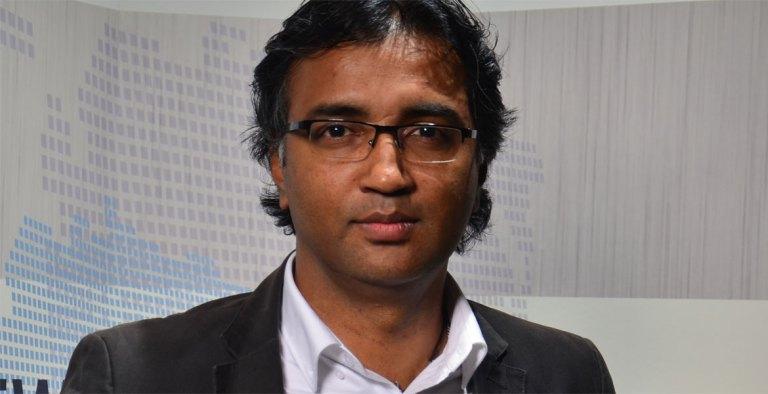
Africa-Press – Mauritius. Mauritius Times: If there is indeed a feeling of fed up and a desire for change among a number – not necessarily insignificant – of Mauritians, as expressed on social networks and in certain press titles and taken up by the movement ‘Pou Nouvo Moris’, do you ask yourself questions about the real motivations of this movement?
Ravin Bhujun: This movement is driven by the anger, frustration and concern of tens of thousands of Mauritians at the traumatic events that the nation has endured for the past 6 months and the way the Government is handling them.
To a certain extent also, by a political climate which remained tense following the legislative elections of last December. Rather, I wonder about the future of the movement; on its purpose.
Every fortnight, thousands of people can take to the streets without their common short- and medium-term goal being expressed beyond a few simple slogans – as powerful as they are.
There is thus a blur on the ‘what’s next?’. If a reflection exists on this subject, it has not been clearly shared and communicated. Suddenly, we do not really understand where all this is leading us and how.
However, with a clearer approach and goals, the movement of anger can become one of hope and change. * This movement met with a second success with the rally in Mahébourg last Saturday.
Organizers are probably considering whether to hold more protests in the near future. What is all this going to turn out to be? The success of the Mahebourg rally – although it was far less resounding than that of August 29 – indicates that the movement is not weakening.
The challenge now is to prevent these protests from becoming a kind of background noise that you will eventually get used to. This will demobilize the protesters themselves and ultimately serve their cause.
If the leaders of the movement are realistic, they must come to terms with the fact that despite their calls for ‘B… Li Deor’, the Government intends to remain in place, unless, of course, a political cataclysm does not fall on Pravind Jugnauth himself and thus forced him to relinquish his post.
Another guideline is therefore necessary; it implies a dialogue between the public authorities and the movement, after the latter has formulated clear requests and proposals.
The movement will produce more tangible results if the pressure it exerts on power becomes more constructive and thoughtful. * The main organizer of the movement seems aware of the limits of street protests as he said that “as long as Mauritians do not get their rights, we will go to court”.
So the street has its limits? The yellow vests movement in France and previously that of Occupy Wall Street in the United States remind us that having popular mobilization as a sole strategy does not produce tangible results as long as these movements are not structured as well in their organization as in their claims.
Occupy Wall Street has come to be the platform for criticizing anything and everything for lack of a coherent strategy. The yellow vests, despite the all too frequent episodes of violence in the wake of their mobilizations, nevertheless influenced Emmanuel Macron’s policy by delaying certain reforms after forcing his government to engage in dialogue.
But compared to Mauritians, the French take to the streets more often and more easily. In Mauritius, it is to a large extent the middle class that makes and unmakes governments.
And the current power has the distinct impression that the middle class is not massively engaged in this movement, which explains its attitude now. * We noted the absence of the main political leaders of the country in Mahebourg last Saturday.
Of course, they are aware of the feeling that prevails among part of the population, especially those who come to express it publicly, and in particular young people.
Do you think they really feel threatened by the ‘Pou Nouvo Moris’ movement?
I don’t think they feel threatened because they probably don’t see the movement as being able to structure itself into a political force and thus represent in the short term a credible and functional alternative to the quartet MSM, Labor Party, MMM and PMSD.
Rather, the leaders of these mainstream parties have gauged the extent to which the protesters’ sense of mistrust of power also extends to all political parties, including those of the opposition; which many protesters also see as part of the problem.
Realizing that they will not be able to easily convert the demonstrators to their cause and therefore having nothing to really gain by joining the movement, the traditional parties have distanced themselves.
* Just like our main opposition parties, the Government, knowing full well that there is – in the current circumstances – no constitutional means to dislodge it, could also choose to “bide its time” in the hope that this movement will weaken over time. What do you think ?
In the absence of a recall referendum-type mechanism, even if 200,000 Mauritians take to the streets every fortnight and a petition calling for Jugnauth’s resignation collects 250,000 signatures, the Head of Government will have no obligation legal to opt out.
I can already hear the cynical geniuses of the Prime Minister’s Office explain to us that it would never be more than 15-20% of the population who vociferated. Even though Jugnauth “took note” of the August 29 rally, the arrogance of those around him is remarkable.
In the aftermath of the Port Louis demonstration, a minister deemed the event “insignificant”; a few days later, a senior advisor welcomed the action of the “great men” in power after the “I love my government” campaign ridiculed on social networks.
This Sunday, the official MSM Facebook page deemed it useful to challenge Bruneau Laurette and the Mauritians for doing nothing during the deadly floods of 2013.
* Is this posture tenable? These attitudes can lead to serious consequences.
Cynicism amounts to pitting a minority of discontented against a majority of the population, which tacitly supports the Government because of its silence.
If the government does this, it will split the country in two and risk exacerbating the tensions that already exist between those who consider themselves to be forgotten [in development and democracy] and those who think they have made the sacrifices necessary for it.
benefit from their current comfort and privileges. The two perspectives hold, the Government can only try to favor one of them. Arrogance can lead to something else.
If the movement is structured, clarifies its demands and wants dialogue but that opposite, the Government continues to show itself condescending, it should not be surprised that the anger of the demonstrators ends up being expressed other than through signs and shouting.
* However ‘crazy outside’ is easier said than done, right? If we take for granted that the vast majority of those who walk want a fundamental political renewal, then the question of alternation arises. Despite the political vacuum and the fertile social context of the time, it took the MMM 13 years to take power in 1982.
Admitting that the legislative elections will not take place before 2023, can Pou Nouvo Moris be structured into a real political formation, endowed with national decision-making bodies, regional offices in each constituency, adequate financial means and a charismatic and pragmatic leadership?
Moreover, when speaking of leadership, some of the movement’s players have a very marked ideology on the left. However, Mauritians are used to being ruled by governments centered in the center and which usually see the business community as a partner and not an adversary to be demonized on a daily basis.
Take the practical question of financing the movement. Will contributions from local businesses or foreign NGOs be accepted? Will we be immune to interested and agenda-driven financial backers?
A consensus will therefore have to emerge to anchor this possible political movement in an ideological framework.
That being done, it does not say that all those who support the crazy li deor program today are so enthusiastic about putting out a radically new ideology andan.
It is easier to agree on progressive ideas about democracy and society than to find consensus on a radical landscaping of the economic and social landscape, as advocated by some actors in the movement. But even if the movement meets the logistical and ideological challenges, it will still have to brave a major obstacle.
Our First Past the Post voting system and an anything but innocent division of constituencies reward and induce certain voting patterns that tend to produce results like those we experienced in December 2019.
* Are we entering a phase of political instability, however? I do not think so. The Government knows that legally nothing prevents him from staying in place.
If wisdom prevails, the prime minister will try to establish a dialogue with the movement. We are only at the start of an extremely difficult economic cycle that will produce a lot of social and economic casualties.
If Jugnauth reasons, he will seek to rule with one permanent political opposition and not two. If, however, the middle class on which the Prime Minister relies for his political authority begins to be directly affected by the economic crisis, then it will become much more difficult to govern.
But we’re not there. At least not yet! * If the dissatisfaction of the population but especially the ‘Pou Nouvo Moris’ movement represent a challenge for the PTr and the MMM, they are also an opportunity to reinvent themselves.
What do you think ? Indeed, I think Pou Nouvo Moris is a good wake up call, especially for parties who thought that those unhappy with government action would de facto support them. Let’s start with the MMM. For years, this party has been the scene of a battle between city rats and field rats.
This dispute needs to be resolved even if this implies that the MMM will henceforth always position itself as a national party whose vocation is first to achieve good results in only a few constituencies and thus to be a partner of choice of a large alliance.
This could imply that Joanna Bérenger succeeds her father. There will be a lot of criticism, some justified, in the face of this. It is still green politically, and the MMM will be the last big party on the chessboard where leadership will also become a family legacy.
But Joanna Bérenger is well seen by many activists, even beyond. So why not? * What about Labor? In my opinion, however, it is the PTr that has the most to gain from a deep questioning.
However, a fundamental question must be answered: Is the Labor Party more important than its current leader or vice versa? Any red strategy of “renewal” which would imply that Navin Ramgoolam remains as the candidate for prime ministersership is doomed to electoral failure, in my opinion.
Unless this choice comes after a political cataclysm affecting Jugnauth personally, as mentioned earlier. Ramgoolam reminds me of Rama Sithanen: he has become an easy target to shoot down.
This, using a well-known and constantly rehashed argument; even if it is based, in part, on total hypocrisy. Like the attacks against Rs 220 million seized at his home in February 2015 .
.
. while he is certainly not the only local political leader to juggle this kind of fortune. The Jugnauth couple, through pure political marketing, like to project themselves as very spiritual. I’m not sure what they want in their prayers.
Each time do they implore the gods so that Ramgoolam remains at the head of the PTr in the next legislative elections? Which would be a guarantee of success for them.
* We do not know at this stage the impact of the joint action of the PTr, the MMM and the PMSD on the political level.
With the arrival of Bruneau Laurette’s movement, will there be an effect on this gathering of opposition parties? This opposition agreement is a three-variable equation, difficult to solve. We are only engaged in an engagement of reason and not of passion. Marriage – electoral this one – promises to be much more complicated.
Even if the interests of the three parties are aligned for the municipal elections, scheduled for June 2021, a three-party alliance for the legislative elections will be difficult to conclude and manage. Consider three examples of deal breakers:
– Will Bérenger and Duval accept that Ramgoolam occupies the post of head of government for a whole term?
– The base of the MMM and the PMSD respectively which dedicate an almost atavistic hatred, will they manage to work together in constituencies where they have clashed for 50 years?
– Finally, what about token positions? Bérenger will be number 2, Duval number 3, but what about Reza Uteem? Shakeel Mohamed, him, will obtain this 4th rank synonymous with vice primeministership?
* Speaking of PTr and MMM, you must have noticed that nothing has changed at the level of these parties, which could pave the way for the emergence of opportunist movements, right? Our voting system will unfortunately continue to favor the four main parties and the alliances they form.
But many Mauritians who march Pou Nouvo Maurice, even though they have voted for these parties in the past, are deeply disillusioned by their immobility and could, indeed, give in to the temptation of despair by supporting the regroupings you allude to.
This is why it is crucial that as the movement takes shape, the main opposition leaders also do their soul-searching and realize their weaknesses. No major changes in these parties, especially the MMM and the PTr, will take place without the blessing, if not the active support of the leader.
For that to happen, more executives and supporters of these parties would need to speak uncompromising language to their respective leaders, making them understand that it is time to leave the scene.
After two bitter electoral failures – he was not even personally elected – I do not understand why Ramgoolam does not announce that he is stepping down; and that, for example, he will spend the next year helping to bring out a handful of candidates for his succession; that at a large Labor assembly around the same time next year, members will then choose the next leader.
This new leader of the Reds, helped by a benevolent mentor in the person of Ramgoolam, will then be able to spend the following two to three years consolidating his team and his base while refining and testing the ideas and proposals that will be presented to the electorate.
during the next legislative elections. For this to happen, leaders will need to have the wisdom to look at the situation and the future of their party beyond themselves. Are they capable of it? I do not believe that.
For More News And Analysis About Mauritius Follow Africa-Press






